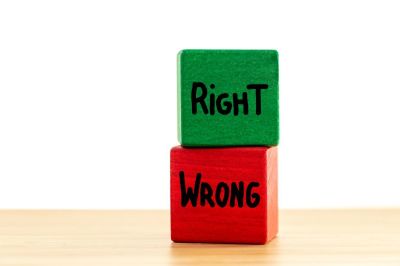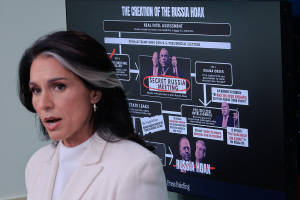How should Christians think about the conscience?

“Everyone is entitled to his own opinion, but not his own facts.” At least that’s what the late senator from New York, Daniel Patrick Moynihan, suggested in 1983. Almost 40 years later, it’s an admonition still worth bearing in mind, recognizing the distinction between subjective perceptions and objective reality. But, as with most bits of proverbial wisdom, the kicker comes in spotting the difference between the two, something always “easier said than done.”
Knowing the difference between opinion and fact is a critical skill for all of life, but the stakes are even higher when it comes to life together as Christians because Christians come with a conscience. And the conscience, that God-given, wonderful, but tricky internal voice, can take our personal opinions and baptize them into God-given facts quicker than you can say “don’t drink, dance, or chew — or hang out with those who do.”
Thankfully, authors Andy Naselli and J.D. Crowley have a prescription for those who are prone to either under-value (or over-use) their Christian conscience.
In Conscience: What It Is, How to Train It, and Loving Those Who Differ, Naselli, a theology professor and pastor, and Crowley, a missionary and linguist, write that their “modest but potentially life-changing goal is to put conscience back on your daily radar, to show from Scripture what God intended and did not intend conscience to do, and to explain how your conscience works, how to care for it, and not to damage it” (p. 17).
They achieve this goal by 1. defining “conscience” biblically; 2. explaining how Christians can be free from a condemning conscience; 3. educating us on how to calibrate our consciences; and 4. teaching how Christians with different consciences can and should live together in peace, whether that’s in the same local church or in a cross-cultural missionary setting. In short, the authors want to help their readers align their God-given consciences to God’s given revelation as much as possible, recognizing there won’t be perfect overlap in this fallen world, and thus reminding us that “your conscience is not identical to the voice of God” — no matter how strongly you may be tempted to think that it is (p. 61).
One of the main points I found to be most helpful was their “Two Great Principles of Conscience” summary. After defining what a conscience is, the authors argue that “of all the principles related to conscience, two rise to the top: 1. God is the only Lord of the conscience, and 2. you should always obey your conscience” (p. 30).
This two-fold “greatest commandment of the conscience” is so practical because it places a premium on the conscience — “obey it!” — but it also puts the conscience in its proper place — “submit it to the Lord.”
Outside of the classically complicated arena of the “strong vs. weak conscience” issues within a local church, these two principles help guard against the twin ditches that exist on either side of a rightly-calibrated conscience: Either “ignoring” or “absolutizing” it. Listening to your conscience is critical — it helps you avoid sin! But “sanctifying” your conscience so much that it can’t be submitted to God is equally dangerous. As the authors write, “If your conscience is so sacrosanct that it’s off-limits even to God, that’s idolatry” (p. 31).
There is a tendency for folks to just assume, “My conscience is perfectly calibrated, thank you very much.” But we should all be humble, and willing to recalibrate, if necessary. We should be willing to consider that our conscience may, in fact, have more submitting left to do to align it with God’s Word and God’s wisdom. The authors state that “Whenever ‘obey conscience!’ collides with ‘obey God!,’ ‘obey God!’ must come out on top — every time” (p. 31). But “obey God!” can only be a real option, and not an empty set, if a Christian is willing to consider that there may yet be more for them to learn from God’s Word.
Another portion of the book that is particularly useful, and serves up much food for thought to digest, was the chapter on “How Should You Relate to Fellow Christians When Your Consciences Disagree” (p. 84). They write on page 92:
“Paul could have given the opposite command: ‘If you have a strong conscience, you must stop eating meat entirely since exercising your freedom might affect those with a weak conscience.’ Most conservative churches today land here. But this solution denies believers their freedom to enjoy God’s good bounty and might even cross the line into false teaching.”
I’m not sure there is any principle or aspiration that Naselli and Crowley call Christians to that I disagreed with, but I would have liked to see them press the application out a bit further, especially on what it would look like, in real life, for a local church to accommodate both consciences on an issue without defaulting to exclusively accommodating the weaker conscience.
I’m inclined to think that many evangelical leaders and even some churches have, perhaps, erred too far on this side in corporate applications — simply telling those with stronger consciences to stop exercising their freedoms, full-stop. Yes, Paul’s teaching in Romans 14 places additional responsibilities on those with stronger consciences. Got it. But I don’t see how always yielding to the weaker consciences is the best way to love them, and it seems the authors don’t see that either. Love, expressed through unity, is the goal. That can be achieved in a variety of ways, including by ensuring both parties show respect, and love, to each other, even without a top-down mandate that favors the weaker consciences.
Let’s make this practical by applying this to COVID. Imagine if during the course of the pandemic a church met somewhere outside where there was NOT a mask mandate for outside gatherings. In that scenario, wearing masks was not a question of complying with a government order — it was simply a question of prudence and wisdom. I would argue that church leadership should say something like this:
“Church family, when we gather outside for our services, since there is no government-ordered mask mandate for this gathering, we are not going to add an additional requirement. However, any member who wishes to wear a mask (the weaker conscience) is, of course, free to do so, and no one who does not wear a mask (the stronger conscience) should think less of your brother or sister for doing so. Further, for anyone who chooses to wear a mask, you should not judge or think poorly of your brother who chooses to exercise their freedom and not wear a mask. Both choices can be valid and neither is sin, so love one another despite your differently calibrated consciences and exercise of freedom.”
Instead, what many churches ended up doing was what the authors warn against — simply telling those who have the stronger conscience (and would be willing to not wear a mask) to stop exercising your freedom entirely since exercising your freedom might affect those with a weak conscience.
As Naselli and Crowley put it on page 95:
“What was Paul’s message to the weak of conscience … ‘If your strictness in these matters is causing you to judge others and bring division into the church, you are sinning and failing to show love … And one more thing: stop trying to force others to obey your rules of conscience.’”
In conclusion, I agree with the authors that, when it comes to facilitating unity in a local church, the goal isn’t necessarily to determine who is right and who is wrong but to preserve the blood-bought unity we have in Christ. And to that end, we should adopt the same spirit of Paul, who was “generous to both sides” and “assumes that both sides are exercising their freedoms or restrictions for the glory of God” (p. 106). Because we do, indeed, serve a Savior who set aside unimaginable freedoms for the sake of setting undeserving captives free.
Originally published at the Standing for Freedom Center.
William Wolfe is a visiting fellow with the Center for Renewing America. He served as a senior official in the Trump administration, both as a deputy assistant secretary of defense at the Pentagon and a director of legislative affairs at the State Department. Prior to his service in the administration, Wolfe worked for Heritage Action for America, and as a congressional staffer for three different members of Congress, including the former Rep. Dave Brat. He has a B.A. in history from Covenant College, and is finishing his Masters of Divinity at The Southern Baptist Theological Seminary.
Follow William on Twitter at @William_E_Wolfe




























